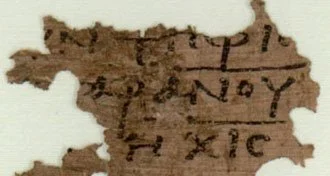So, who was this man whom God called to suffer great loss and play such an important role in redemptive history?
Job is introduced to the reader in the opening verses of the first chapter. “There was a man in the land of Uz whose name was Job, and that man was blameless and upright, one who feared God and turned away from evil” (v. 1). The land of Uz is east of the River Jordan (Qedem–“the east”), likely in what is now the nation of Jordan. Uz could be anywhere between Edom on the south, Moab on the east, and the land of the Aram to the north. While Job was not an Israelite–since no tribal or family identification is given–he clearly worships Israel’s God, the God of Abraham, Isaac, and Jacob. [1] So, apparently, do his friends and family.
As the story opens and we meet the central character, what stands out is the assertion that Job was “blameless and upright” and that “he feared God and turned away evil.” What, exactly, does this mean? One thing it does not mean is that Job was sinless, or that he had attained a state of justifying righteousness because he lived a blameless and upright life. We must not confuse cause and effect. We know this to be the case because elsewhere in this book Job declares himself to be a sinner. In Job 7:20, Job laments, “If I sin, what do I do to you, you watcher of mankind? Why have you made me your mark? Why have I become a burden to you?” In Job 13:26, he laments “for you write bitter things against me and make me inherit the iniquities of my youth.” Finally, in Job 14:16 -17, Job confesses that “you would number my steps; you would not keep watch over my sin; my transgression would be sealed up in a bag, and you would cover over my iniquity.”
To read the rest, follow the link below
Read More




















